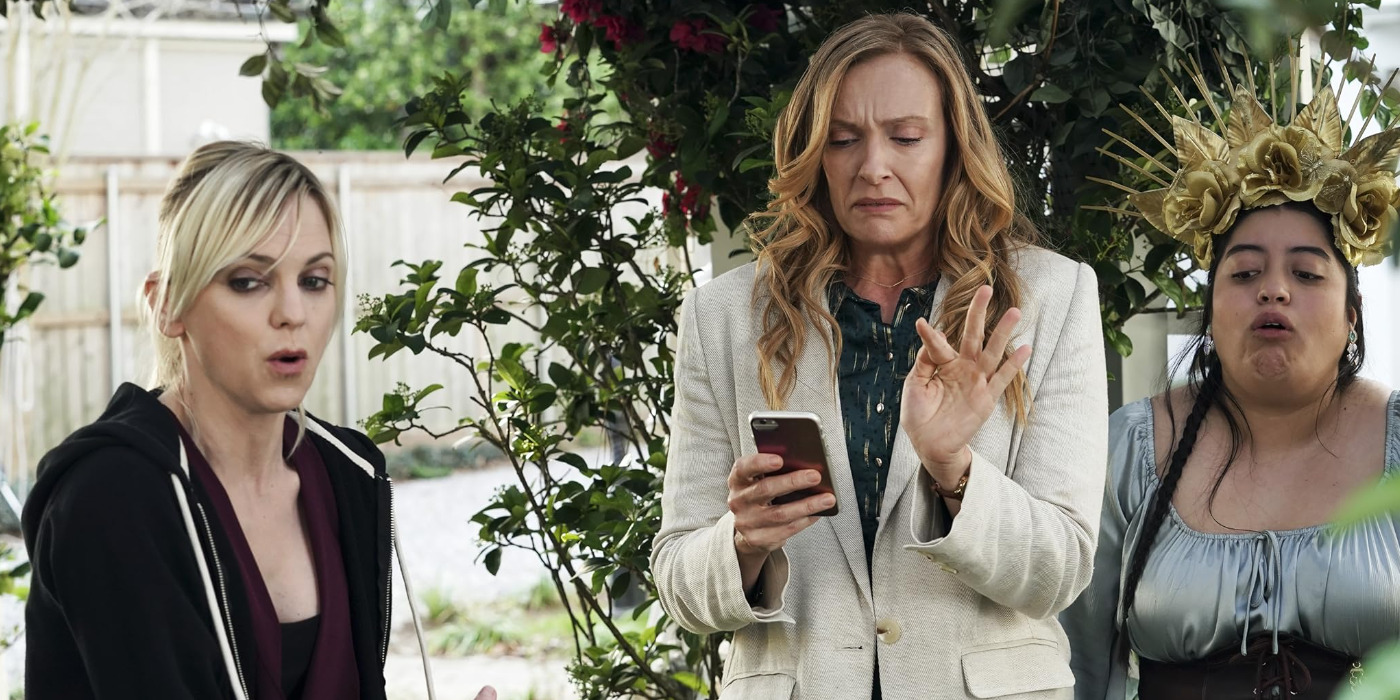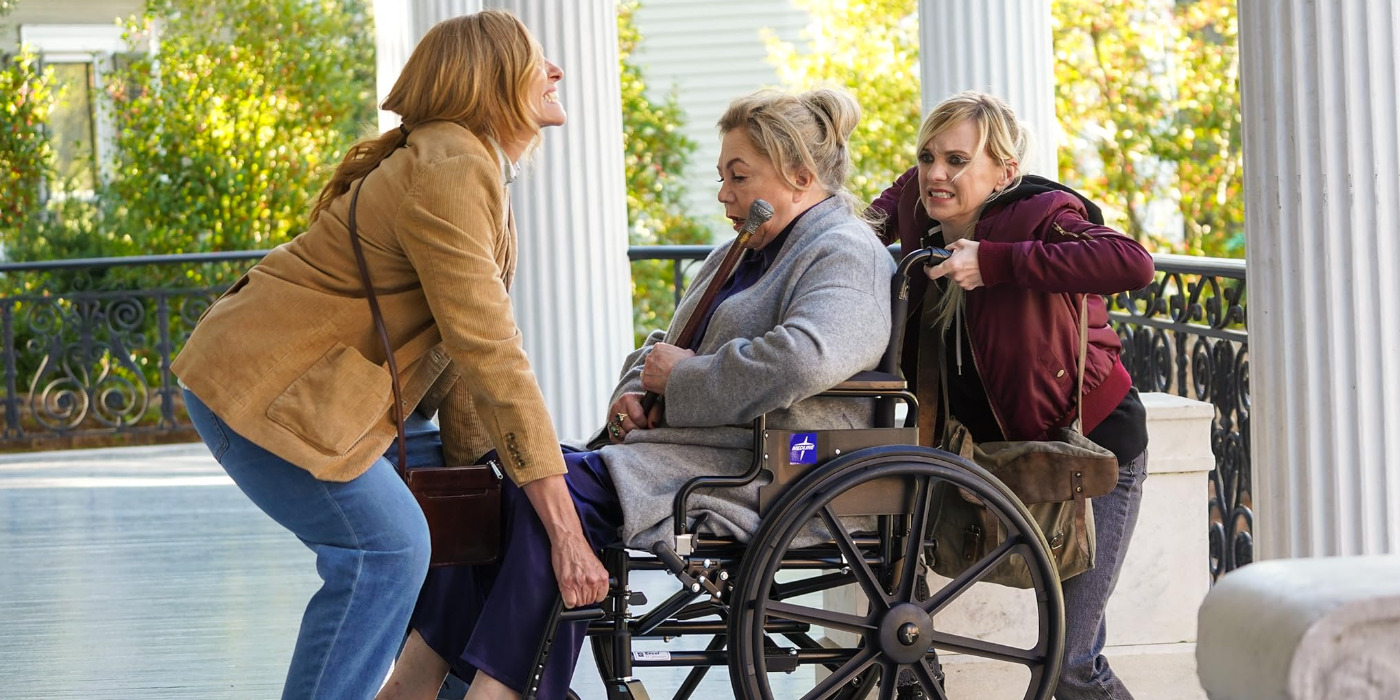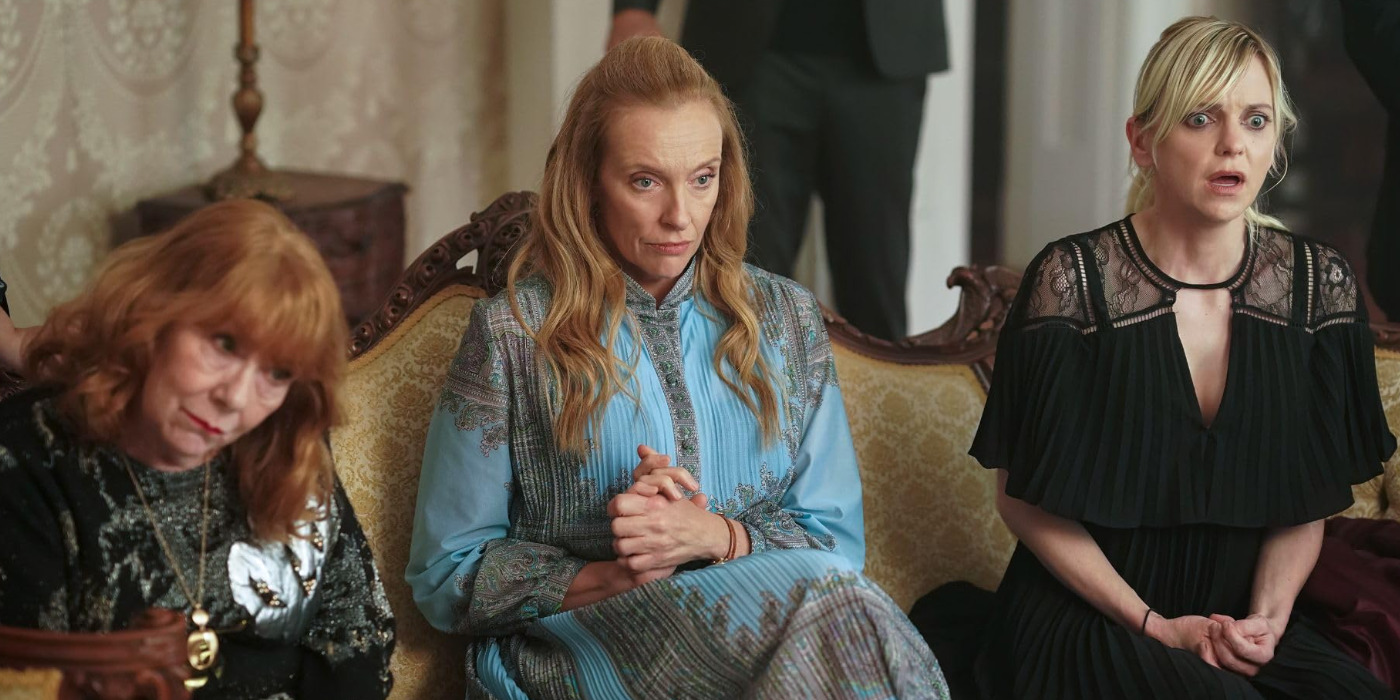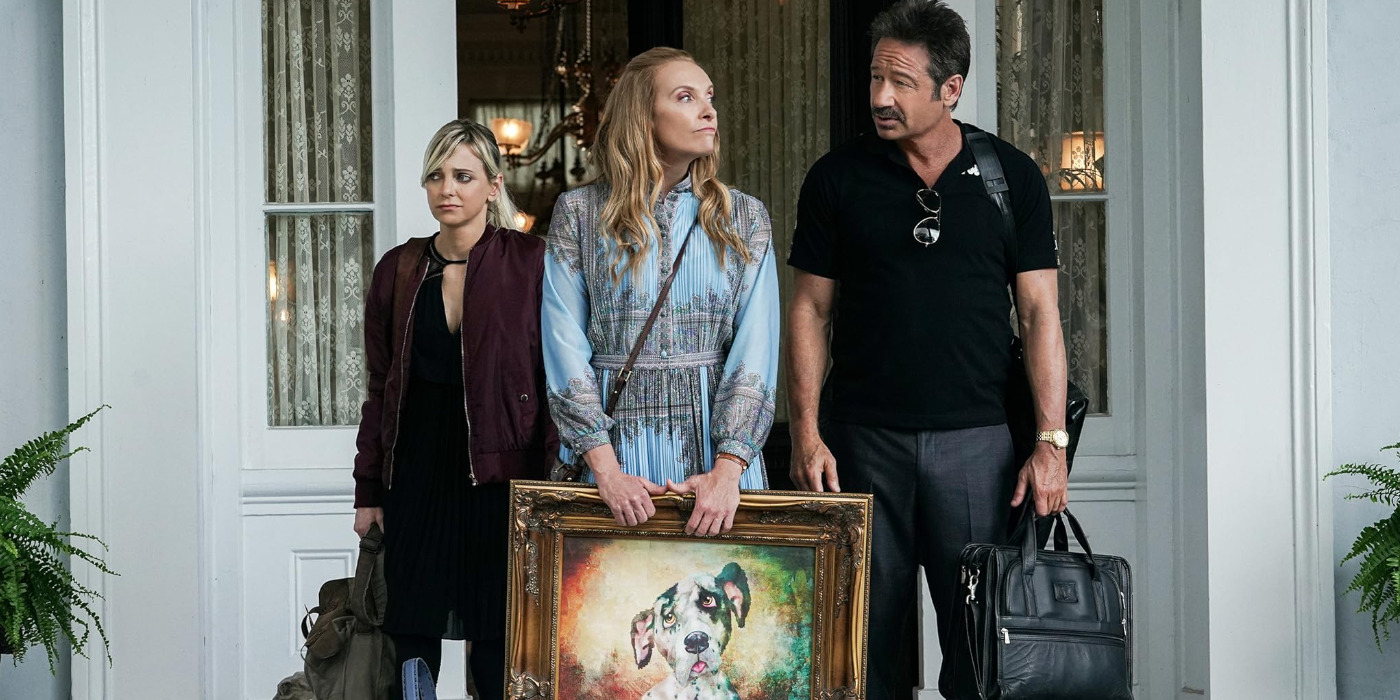‘The Estate’ is a dark comedy film directed by Dean Craig that presents the story of an absurdly dysfunctional family who comes together under one roof to feed their selfish, money-driven motives. Hilda Beauchamp is an elderly woman who has accumulated a hefty wealth throughout her life. Still, she remains poor in terms of interpersonal relationships, as her dreadfully unlikeable personality puts off most people, including her relatives. Even so, as the woman approaches her death, her nieces, Macey and Savanna, visit to look after their aunt in her final days—sporting a secret mission to earn a spot as inheritors of Hilda’s estate. However, once the two sisters arrive at her doorstep, they realize their cousins, Beatrice and Richard, have concocted similar plans.
Consequently, the cousins enter a messed-up competition to appeal to the dying woman, hoping to benefit in hopes of benefitting from her vast fortunes. The same results in increasingly outlandish hijinks to charm and manipulate the surly Aunt Hilda before she inevitably kicks the bucket. As the story reaches its end, it brings surprising conclusions for all the characters—particularly Macey, who receives a unique gift from her aunt. Naturally, given their bitter relationship, Hilda’s motives behind the same presents an intriguing mystery. SPOILERS AHEAD!
Dog, The Painting: Macey’s Unexpected Inheritance
The film centers around the outlandish attempts made by Macey, Savanna, and their cousins to earn a golden spot in their Aunt Hilda’s good graces. The cousins leave no stone unturned in one-upping each other in this private competition—be it through bouquets and confectionaries or efforts to fulfill their aunt’s dying sexual wishes. The older woman sports an incredibly unpleasant personality. As such, it prevents anyone from feeling particularly bad about the unkind nature of the schemes that the central characters devise to manipulate her. Yet, the cousins steadily begin to take an increasingly appalling route with time.

By the end, Macey and the others band together to incriminate Hilda’s newfound fiance of public indecency in a roundabout way to ensure their spots on their aunt’s final will. Predictably, the same ends in disaster—which, surprisingly enough—becomes the catalyst for a shock attack that ends up finalizing Hilda’s death. Even so, as the woman is on her deathbed, the cousins manage to have her estate signed over to them. Thus, Hilda dies—but not before acknowledging her family’s startling lack of morality. Nonetheless, no one but the straight-laced Macey can truly find it in themselves to feel guilty about the turn of events.

Therefore, it feels like comeuppance when it’s revealed that Hilda’s estate is worth almost next to nothing due to her tax-based debts. The fact that she leaves behind a painting of a sad-looking Dog for Macey feels like an added element of cruelty. Hilda had previously likened the painting’s sad Dog to Macey, claiming the canine always reminded her of her niece. Therefore, Macey inheriting the painting feels like another unpleasant jab from the older woman from beyond the grave. Nevertheless, a climactic reveal about the painting leaves the tables turned. As it turns out, the painting isn’t a cheap find—as previously established—but rather a piece worth millions of dollars.
What are Hilda’s Possible Motives?
Initially, Macey and Savanna think nothing of the Dog painting as the former decides to keep a hold of it simply because Aunt Hilda left it to her. Nevertheless, she isn’t particularly attached to the piece. For the same reason, she carelessly gives Savanna permission to burn it in a fit of frustration. However, as her sister takes the painting away, their half-sister, Ellen, makes a jarring discovery. A piece of paper falls out of the Dog painting, which confirms that the piece is actually worth 4.3 million dollars. The film ends with Macey running after Savanna to prevent her from burning the painting, which can change their entire future.

The reveal pitches the obvious question of whether or not Macey saves the painting from a fiery demise. Yet, another more pressing mystery persists beneath the surface: did Hilda intentionally leave millions of dollars for Macey? It seems unlikely to assume as much, considering Hilda never showcases any fondness for Macey. If anything, Macey seems to invite the most ire from the woman. For one, Hilda has a rivalry with Macey’s mother, which doesn’t seem resolvable even when the former is at death’s door. Likewise, she continues making jokes at Macey’s expense at every other interaction—including the comparison to the painting’s sad Dog.
Even though Macey distinguishes herself from her more selfish relatives by showcasing an ounce of remorse over her actions, Hilda isn’t actually around to witness the same. Therefore, it seems unlikely that the woman would want to reward her niece with a part of her wealth. Furthermore, Hilda would have had no reason to lie about the painting’s initial price tag, claiming it to be worth only a few bucks. As such, all clues point toward a simple explanation: Macey’s inheritance of the expensive painting is a wildly fortunate coincidence. It is likely that Hilda never realized the true worth of the Dog painting and only left it to Macey in her will as a final joke.

Consequently, Macey’s possession of the painting remains an ironic narrative compensation rather than an out-of-character kind-hearted gesture from her aunt. Yet, since the film equips the instance as a climactic twist and leaves it open to the audience’s interpretation, one can also draw the conclusion that Hilda intentionally left a considerable inheritance to Macey. An argument can be made that despite her shortcomings, Hilda wanted to do one good thing for her nieces—who were evidently in a worse financial state than their cousins. Similarly, it is also possible that Hilda left the painting to Macey in a last-minute attempt to repair her relationship with her sister. Still, it’s worth noting that the implication of a last-minute moral transformation for Hilda remains starkly incompatible with the rest of the film’s themes. Ultimately, the narrative lays out the clues for both conclusions, allowing viewers to pick their own interpretations of Hilda’s character and her dying actions.
Read More: Best Family Movies on Paramount+


You must be logged in to post a comment.